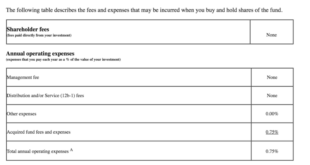Mortgage Broker: A Guide to Understanding and Choosing the Right Broker. When buying a home or refinancing a property, finding the right mortgage can be daunting. A mortgage broker can simplify this process, providing expert guidance and helping you choose the best loan option. This article delves into the role of mortgage brokers, their benefits, and how to select the right one to secure your ideal loan.
What Is a Mortgage Broker?
A mortgage broker is a licensed professional who acts as an intermediary between borrowers and lenders. They help clients find the best mortgage options, working with multiple lenders to match borrowers with loan products that fit their financial situation.
Why Use a Mortgage Broker?
- Access to Multiple Lenders: Mortgage brokers have access to a network of lenders, increasing your chances of finding favorable loan terms.
- Saves Time and Effort: Rather than approaching various lenders independently, a broker does the comparison work for you.
- Expert Advice: Brokers have market insights and can advise on the best options based on credit history, financial status, and property type.
- Tailored Mortgage Solutions: Brokers offer tailored advice to align with your unique needs, from loan type to down payment requirements.
How to Choose the Right Mortgage Broker
- Check Credentials and Licensing: Verify that the broker is licensed and has a solid track record.
- Ask About Fees: Understand the fee structure, whether it’s a flat rate or commission-based.
- Evaluate Communication Skills: Choose a broker who communicates clearly and responds promptly.
- Review Broker’s Reputation: Look for reviews and testimonials from previous clients.
- Consider Their Lender Network: A larger network increases the likelihood of finding favorable loan terms.
Benefits of Working with a Mortgage Broker
- Convenience: Brokers handle paperwork, negotiate terms, and often expedite the loan approval process.
- Cost-Effective: Brokers can help you secure lower interest rates, saving money over the life of the loan.
- Time-Saving: Brokers streamline the process, allowing you to focus on other aspects of home buying.
- Negotiation Power: Brokers leverage their relationships with lenders to negotiate better terms and rates.
Mortgage Broker vs. Bank Loan Officer
| Feature | Mortgage Broker | Bank Loan Officer |
|---|---|---|
| Access to Lenders | Multiple lenders | Single bank |
| Flexibility | Higher flexibility | Limited to bank’s offerings |
| Fees | Broker fees may vary | Often lower or embedded in loan rate |
| Interest Rates | Can offer competitive rates by comparing options | Set rates |
| Application Process | Broker manages multiple options | Direct with bank only |
10 Tips for Finding the Right Mortgage Broker
- Research online for brokers with high ratings and reviews.
- Compare quotes from different brokers before choosing one.
- Ask if they specialize in specific loan types that fit your needs.
- Confirm their credentials, licensing, and background.
- Inquire about their lender network size.
- Understand their commission structure to avoid hidden fees.
- Ask if they have experience with clients in similar financial situations.
- Ensure they have good customer service and communication skills.
- Seek recommendations from friends or family.
- Look for brokers who explain the loan process clearly and answer questions.
10 FAQs About Mortgage Brokers
- What does a mortgage broker do?
- Mortgage brokers connect borrowers with lenders to find suitable loans.
- Is it cheaper to use a mortgage broker?
- Often, brokers can secure competitive rates that may save money over time.
- How are mortgage brokers paid?
- They are paid either through commission or a flat fee.
- Do brokers charge upfront fees?
- Some may charge upfront, while others are paid upon loan completion.
- Are brokers licensed?
- Yes, brokers must be licensed to operate legally.
- Can brokers help with refinancing?
- Yes, brokers assist in finding refinancing options too.
- Do I need good credit to work with a broker?
- Brokers work with various credit scores but better credit improves loan terms.
- How long does it take to get a loan with a broker?
- Depending on complexity, it can take a few days to several weeks.
- Are brokers biased toward certain lenders?
- Ethical brokers remain impartial, though they may favor lenders with favorable terms.
- Can a broker help with first-time home buying?
- Yes, brokers are beneficial for first-time buyers seeking guidance.
Conclusion
Mortgage brokers provide invaluable support for homebuyers and property investors, simplifying the lending process and potentially securing better terms than you’d find on your own. By working with a reputable, experienced mortgage broker, you gain access to a broader range of lenders, competitive rates, and expert guidance that can streamline the journey to homeownership. Choose wisely by evaluating credentials, reputation, and transparency, ensuring you partner with a broker who aligns with your financial goals and offers tailored solutions for your unique needs.
 mortgage.kbk.news
mortgage.kbk.news
